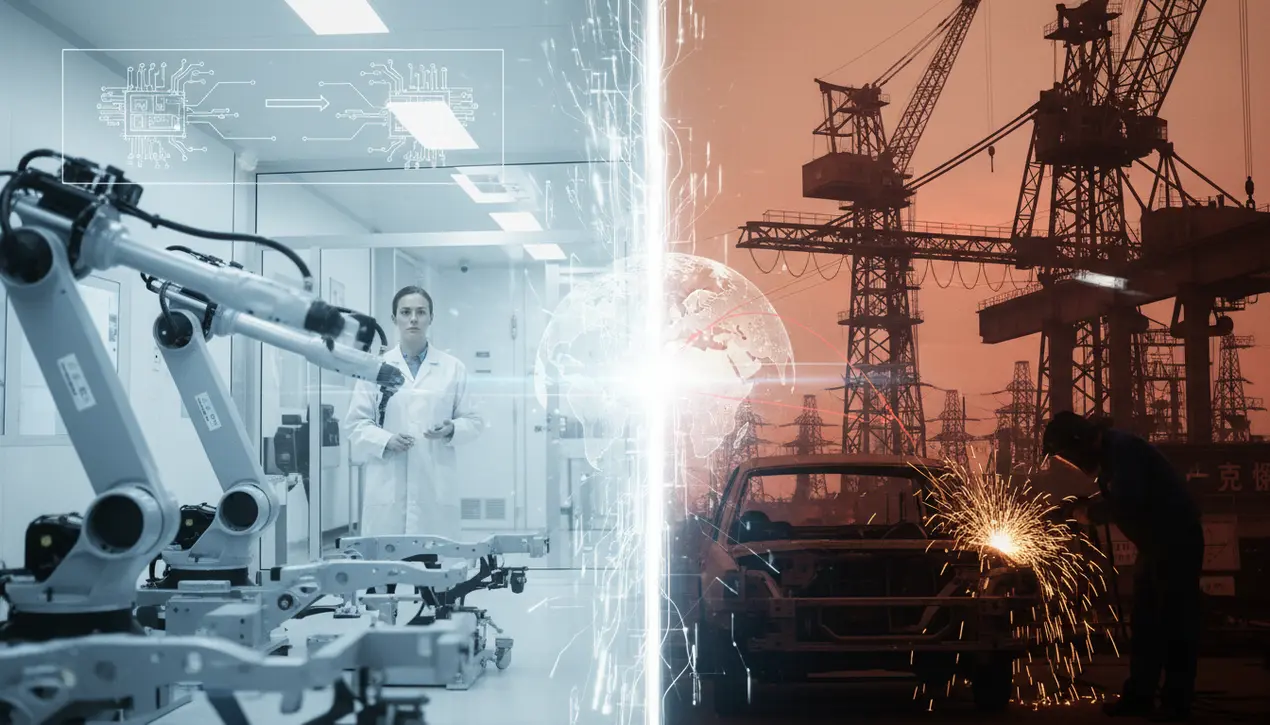
FinancemarketsGlobal Market Overview
Tesla's Plan to De-Risk Supply Chain from Chinese Components
TH
Thomas Green
2 days ago7 min read1 comments
Tesla's reported strategic pivot to systematically eliminate Chinese-made components from its US-built vehicles represents far more than a simple supply chain adjustment; it's a profound realignment echoing the grand-scale industrial maneuvers of the space race era, a deliberate de-risking operation set against the stark backdrop of an increasingly tense geopolitical climate between Washington and Beijing. According to Curt Hopkins, CEO of the automotive investment platform MCQ Markets in Miami, Tesla is effectively architecting a 'completely dual strategy,' a bifurcated approach where its operations within the United States will aggressively 'de-China,' diversify sourcing, and manufacture a more domestically insulated product, while its formidable Shanghai Gigafactory will likely continue its deep integration within the Chinese ecosystem to serve regional and other international markets.This isn't merely a corporate contingency plan; it's a direct reflection of a significant, overarching national industrial policy that has been gaining momentum, seeing American industrial giants from semiconductors to electric vehicles actively seeking to untangle themselves from critical dependencies that represent a single point of failure in a world where technological supremacy is the new frontier of global power. The parallels to historical moments of industrial mobilization are striking—much like the intense competition that fueled the Apollo program, today's race for clean energy and automotive dominance is forcing a recalibration of global manufacturing maps, pushing companies to build redundant, resilient systems capable of withstanding not just logistical shocks but political ones as well.For Tesla, a company whose visionary CEO, Elon Musk, has consistently framed his mission in existential, species-level terms like colonizing Mars, this earthly maneuver is a necessary tactical retreat from the very globalization that enabled its meteoric rise, a recognition that the low costs and unparalleled efficiency of China's manufacturing juggernaut now carry an unacceptably high strategic liability. The implications ripple outward, potentially accelerating a broader 'friend-shoring' trend where supply chains are re-routed through politically aligned nations like Mexico, Vietnam, and India, creating new industrial hubs while simultaneously forcing a painful and expensive period of recalibration for the entire automotive sector.This decoupling, however, is a Herculean task; China currently dominates the production of countless essential components, from rare earth magnets crucial for electric motors to advanced battery cells and an array of sophisticated electronics, meaning that Tesla's engineers and procurement specialists are embarking on a multi-year quest to identify, qualify, and scale alternative sources without compromising on the performance or cost-effectiveness that defines their brand. The financial and temporal costs will be immense, likely pressuring margins and potentially slowing innovation cycles in the short term, yet the long-term payoff is a fortified, sovereign supply chain less vulnerable to the whims of international discord. This strategic shift also raises fundamental questions about the future of globalized innovation itself—will we see a splintering of technological standards, a 'Great Wall' of competing EV architectures, one aligned with Western norms and another with Chinese specifications? The answers to these questions will not only determine the competitive landscape for the next decade of transportation but will also fundamentally shape the economic and political alliances of the 21st century, making Tesla's supply chain decision a critical data point in the unfolding story of a new, more fragmented world order.
#Tesla
#supply chain
#de-risking
#electric vehicles
#US-China trade
#featured
Stay Informed. Act Smarter.
Get weekly highlights, major headlines, and expert insights — then put your knowledge to work in our live prediction markets.
Related News
Comments
Loading comments...
© 2025 Outpoll Service LTD. All rights reserved.